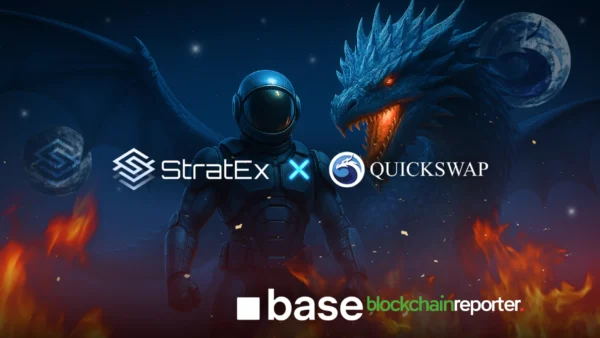
The financial industry is an ever-growing sector despite being affected by factors such as the pandemic. Moreover, the world’s financial sector forecasts growth of about $26 Trillion by 2022. Decentralized Finance (Defi) is the modern alternative financial system that eliminates the need for trusted intermediaries, commonly referred to as the traditional financial system.
Blockchain technology has grown immensely. Most importantly, there has been a surging need for efficient financial systems to cover the gaps present in older financial systems. Generally, it is vivid that Defi will be one of the critical buzzwords of blockchain technology. The movement is sure to have game-changing impacts on the current financial infrastructure, as discussed below.
Decentralized Exchanges
These are some of the most vital innovations in blockchains. Decentralized exchanges (DEX) enable users to be in control of their finances stored in external wallets. As such, it reduces the risk of losing all funds in case of a hack while depositing crypto into exchanges. The forex market is an example of decentralized exchanges because there is no physical location where investors meet to buy or sell currencies.
Decentralized finance is a blockchain-based concept designed to provide an open, transparent, and secure financial system. DEX also helps prevent wash trading and market manipulation through peer-to-peer lending and also facilitates anonymity of transactions.
DeFi’s Innovation of New International Payment Systems
To date, the SWIFT protocol had been one of the main methods of sending money overseas. However, this process is rapidly becoming outdated since new verification mechanisms, transaction, and payment paths are made possible by the new decentralized finance options. The networks that accommodate Decentralized finance often rely on blockchain to remedy the traditional financial systems’ limitations.
The new frameworks allow for the international transfer of finances without necessarily having any rigid verification processes. Moreover, limitation-less international banking processes can link to a new financial realm whereby the owners of a financial process allow cross-platform transactions more securely and confidently.
Lower Cost of Business Transactions
Another way Defi could revolutionize the financial system reflects via ways that eliminate several transaction costs by solving several Byzantine fault-tolerant consensus issues. Taking the example of SWIFT, you will find that most new companies are streaming into the niche to provide lower-cost payment options.
Defi covers a wide range of areas, from derivatives to remittances and investments. However, credit and lending is its most promising sector because it makes loans and credit more available to a bigger pool of people than ever before. Loans offered by Defi tend to have lower interest rates, thus making loans cheaper to repay. Chances are, investors and other people in business will see these savings reflected in both opex and capex.
Faster and More Secure Transactions
Execution of all transactions in the decentralized finance sector is through a blockchain network. It’s a distributed ledger that can process many transactions per second and is a very secure network. Therefore, Defi products programmed on Ethereum can make more secure and fast financial services. Moreover, the integration of blockchain into financial products such as ripple enables users to send or receive money without worrying about any privacy violations by governments.
Decentralized finance can provide uncensored access to global financial services. It is one of the main reasons why it will always be ahead of the traditional finance field. People today value their privacy, and hence any product that guarantees user anonymity and avoids unethical privacy violations, especially from authorities, will undoubtedly be adopted.
DeFi for Financial Innovations
Decentralized finance has proven to be a reliable tool. It has led to the development of a ton of financial products previously known to be the domain of only large, licensed institutions. Futures, swaps, and financial derivative products powered by digital ledger technology may soon become a reality considering the countless innovations revolving around digital ledger technologies.
Defi Apps
Even though decentralized finance is still in its initial stages of innovation, new applications’ development is imminent. As such, it gives users a taste of what the future of the financial sector could be. Some of the popular apps include DAI, with about 21,000 users, Bancor Network and Dharma.
Also, Defi savings applications provide a non-custodial wallet. The wallet enables different users to connect their U.S Bank account to move digital dollars into a blockchain’s liquidity pool. Thus with Defi apps, you can enjoy permissionless, straightforward, open finance, loan access, and many more financial solutions.
DeFi in Insurance and Asset Management
Certain Defi insurance products protect their users against any custodians’ errors because there are no automatic safeguards against these errors. The policy may be applied to pools, personal wallets, or smart contracts for lending and staking. The primary goal of Defi insurance is to cancel the costly traditional insurance monopolies. It also makes insurance more affordable and flexible to all users. Today, there are more than ten Defi insurance providers.
When it comes to asset management, Defi has a myriad of advantages as well. Some of them include automation, global access, financial inclusivity, and non-custodial ownership of assets. Decentralized finance products are fast-growing to become more user-friendly as well as accessible.
Final Word
Defi is well-equipped to re-invent the world’s economy with the latest blockchain technology spearheading this process. In 2021 and beyond, Defi looks promising and will most likely significantly impact the global financial system. The current financial system desperately requires an overhaul to enhance its processes and maximize its potential for the modern age. After Covid, the world economy will be ‘risk on’ to recover.
The future is decentralized, and it will undoubtedly influence the financial sector sooner or later. The more secure, inclusive, and streamlined opportunities offered by Defi platforms are the vehicles that will drive this change. Defi could lead to the unbanked people acquiring access to banking services in the areas where traditional financial systems have failed. As such, this fact highlights its vast potential.








